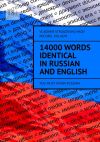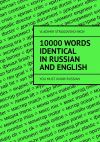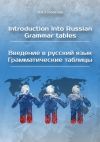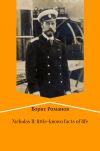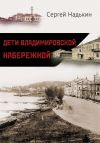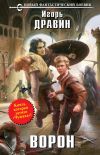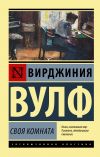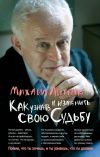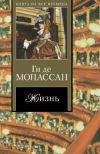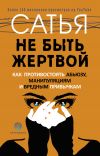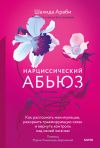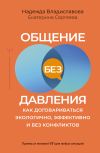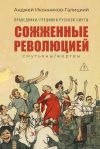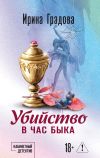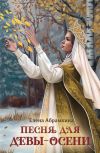Читать книгу "A new look at the Russian February Revolution of 1917"
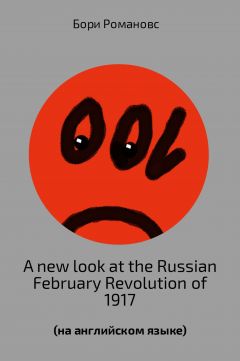
Автор книги: Борис Романов
Жанр: Жанр неизвестен
Возрастные ограничения: 12+
сообщить о неприемлемом содержимом
A new look at the Russian February Revolution of 1917.
In recent years in Russia, there is formed a new look at the causes of the revolution in February 1917 and the fall of the monarchy on March 2, 1917. Of course, the fact that at the end of the First World War four monarchies fell (Russia, Germany, Austria-Hungary and Turkey), this indicates tectonic shifts in world history. However, the revolutions in each of these countries had their own peculiarities. Russia is the only country of the Entente (the camp of the victors), which underwent a revolution and then collapsed – although its resources were the largest among all the warring countries, and the hardships of the war were the least.
In this brochure we will try to understand these contradictions and reveal the true reasons for the conspiracy against the last Russian emperor Nicholas II. I decided to present here (briefly) the history of the Russian catastrophe of 1917 according to my big book "The Emperor Who Knew His Fate. And Russia, which did not know "(2012, published by BHV-Petersburg) – by the way, all sources are given in this book (in its third part), and I give these source here too (at the end of the text below).
Let's begin, of course, with a turning point in the destinies of the world of 1914.
Economy and level of life in Russia by 1914.
By the beginning of the First World War, Russia was among the five most developed and relatively prosperous countries in the world. Of course, in absolute terms in many respects, Russia lagged far behind the United States, Britain and Germany, but in terms of the growth rates of industry and the economy as a whole came out on top in the world. According to both Western and Russian economists of thouse time, in 20-30 years Russia would be up a hegemon in Europe in all indicators of the national economy. In 1912/13 the famous French economist Edmond Thery get commissioned a survey of the Russian economy on behalf of the French government. Noting remarkable progress in all areas, Thery concluded: "If the affairs of the European nations will go from 1912 to 1950 in the same way as they went from 1900 to 1912, Russia will dominate Europe in the middle of the current century both in political and economic so and financially." In his book «The Economic Transformation of Russia» [113], he summed up Russia's astounding successes in all areas: "There is no need to add that no people in Europe can boast of such results."
The standard of living of the Russian workers by 1914 was no worse than the standard of living of workers in the most developed countries of Europe, and was approaching the standard of living of workers in the United States [111] [112]. Literacy of the population in 1914 still lagged far behind the developed countries of Europe and the USA (literacy of recruits was about 75%) [15], but the enrollment of schoolchildren with elementary education was growing rapidly, and by 1917 in the European part of Russia, among boys the coverage were already approaching to 90 %. [98] Higher and secondary education in Russia in terms of level and coverage were no worse than in Europe, and in the field of technical education and better. [98] Training in comparison with the countries of Europe or the United States was inexpensive. The proportion of students from workers and peasants increased every year, and by 1917 was comparable to the level of the 1970s in the USSR. [24] Rapid development in the early twentieth century there were and the formation of peasants in agricultural technology and collective cooperation.
Stolypin's reforms, contrary to Soviet myths, did not come to naught after the death of Stolypin (in 1911), and just by the beginning of the First World gave their main fruits. [39] During the period of the WWI, the standard of living of peasants grew even more strongly (thanks to military supplies). Agricultural and credit cooperation also developed rapidly, and by 1917, according to the level of cooperation in agriculture, Russia was the first in Europe. [40]
The political system of Russia after 1906 was a Duma monarchy (close to the constitutional monarchy). Since June 1907, the electoral law was close to English, but the emperor in this Duma monarchy had much greater rights than the English queen (but much smaller than Putin in Russia, especially after 2012).
Freedom of speech, press, rallies and demonstrations were real, as was the multiparty system. Social insurance and working legislation, according to the American President Taft, were the best in the world at that time. [18] [75] Trade unions developed and strengthened rapidly. Courts were really independent (since the 70-ies of the XIX century). The number of officials per capita was less than in the developed countries of Europe (and much less than immediately after 1917 in the Soviets-USSR) [68] [82]
Of course, at the beginning of the twentieth century the situation of workers in all developed countries still left much to be desired, but in Russia after 1917 it became much worse than under Nicholas II (the standard of living of workers and peasants was restored by the end of the NEP (by 1927), but then again began to fall and reached a minimum in 1940 (the workers – twice as bad as 1913, the peasants – and much lower and worse). [87] The working conditions of the workers in the USSR were worse than in tsarist Russia right up to the beginning of the mass Housing construction under Khrushchev (in the late 1950's). [27] [46] During twenty years of government of Nicholas II the population of the empire increased by more than fifty million people – by 40%, the natural increase of the population exceeded three million a year.In addition to the natural increase, the general level of well-being increased significantly: for example, deposits in state savings banks increased from three hundred million in 1894 to two billion rubles in 1913. [79]
Let us also note that at the International Congress of Criminalists, held in Switzerland in 1913, the Russian detective police were recognized as the best in the world in the detection of crimes.
Main problems of Russia by 19141917.
In addition to the problems common to all developed countries of the time (a long of the working day and economic strikes), in Russia there were four more significant problems:
* High corruption among low strata officials and police (corruption in the middle strata was low, and it was almost zero at the top echelons before the First World war).
* The long-held conviction of the majority of the peasants that all of their main problems can be solved by redistribution of "master's" lands ("black redistribution") – although in fact already by the beginning of the twentieth century, peasants already owned 80-85% of all lands for agricultural purposes, [92] and after the Bolshevik decree on land, the real increase in peasant allotments was only 16.3% [47, p. 72].
At the same time, the RSDLP (both the Bolsheviks and the Mensheviks) had actively propagated the idea of a "black redistribution" until October 1917, poking into class privileges and the gap between educated and needy classes. Although this gap after the revolution of 1905-1907 was steadily declining year by year and social lifts worked really well by 1917, but "class hatred" was actively and constantly fueled by the revolutionary parties (let remember that before the WWI the Social Democrats had their faction in the Duma, and legally (and even more illegally) published their newspapers).
* Contradictions between Moscow (Old Believer, paternalistic in ideology) and Petersburg (pro-European, liberal) trade and industry groups. As shown in recent years by Dr. A.V. Pyzhikov, it is these contradictions (namely, Moscow merchants and industrialists from Old Believers) that played a significant role in all three Russian revolutions of 1905-1917 [Pyzhikov AV Peter-Moscow. The battle for Russia / A. V. Pyzhikov. – M .: Olma Media Group, 2014.].
Attempts prevent war.
Let's start with the fact that, contrary to known myths, Nicholas II did everything possible to avoid a world war – beginning with the Hague Peace Conference convened on his initiative of 1898, and then in the years of the Balkan wars (1912-1913), and literally up to the last day before the start of the WWI. Really, two days before the start of the WWI, on July 29, 1914, Nicholas II has suggested Kaiser Wilhelm to convey the Austro-Serbian dispute to the Hague International Tribunal – but the Kaiser actually had not regected any answer this peaceful path. [1] [3] [5] [19] ] [47] [80] This fact from their correspondence became known to the world community in January 1915 and was the cause of a major international diplomatic scandal.
Burden of war and life's level of the people to 1917
(According to my materials of Wikipedia's article on the premises of the February Revolution).
Comparing Russia with other belligerent countries, historian S. V. Volkov wrote that the burden and trials on the Russian economy was lower than in other countries, both in the Allied camp and among its opponents; that there were no objective preconditions for the revolution, that Russia's military position on the eve of the revolution did not give cause for concern, and comparing the burden on the human resources of the countries participating in the First World War, he cited such figures [Volkov, S.V. "The Forgotten War", 2004.]:
<<The share of the mobilized in Russia was the smallest, only 39% of all men aged 15-49, while in Germany 81%, Austria-Hungary 74%, France 79%, England 50% Italy – 72%. At the same time, for every thousand people mobilized in Russia, there were killed and dead 115, while Germany – 154, Austria – 122, France – 168, England – 125, etc.), for every thousand men aged 15-49 years Russia lost 45 men, Germany – 125, Austria – 90, France – 133, England – 62; Finally, for every thousand people at all, Russia lost 11 people, Germany – 31, Austria – 18, France – 34, England – 16. Let's add that almost the only of the fought countries, Russia did not have any problems with food. The inconceivable structure of «military bread» of the model of 1917 in Germany could not dreame to anyone in Russia. >>
Thus, the hardships of the war in Russia were much less severe than in Austria-Hungary and Germany or France, and no more severe than in England. Nevertheless, unlike these countries, in Russia, almost from the very beginning of the war, a conspiracy against the supreme authority (against Nicholas II) was brewing, and by the beginning of 1917 this plot had found a real plan.
…
Ten years after the catastrophe of 1917, Winston Churchill wrote about Russia and Nicholas II: [Winston Churchill. The World Crisis 1916-1918. Vol.1 N.Y. 1927. (P.227-228)]
“It is the shallow fashion of these times to dismiss the Tsarist regime as a purblind, corrupt, incompetent tyranny. But a survey of its thirty months' war with Germany and Austria should correct these loose impressions and expose the dominant facts. We may measure the strength of the Russian Empire by the battering it had endured, by the disasters it had survived, by the inexhaustible forces it had developed, and by the recovery it had made. In the governments of states, when great events are afoot, the leader of the nation, whoever he be, is held accountable for failure and vindicated by success. No matter who wrought the toil, who planned the struggle, to the supreme responsible authority belongs the blame or credit.
Why should this stern test be denied to Nicholas II? He had made many mistakes, what ruler has not? He was neither a great captain nor a great prince. He was only a true, simple man of average ability, of merciful disposition, upheld in all his daily life by his faith in God. But the brunt of supreme decisions centred upon him. At the summit where all problems are reduced to Yea or Nay, where events transcend the faculties of man and where all is inscrutable, he had to give the answers. His was the function of the compass needle. War or no war? Advance or retreat? Right or left? Democratise or hold firm? Quit or persevere? These were the battlefields of Nicholas II. Why should he reap no honour from them? The devoted onset of the Russian armies which saved Paris in 1914; the mastered agony of the munitionless retreat; the slowly regathered forces; the victories of Brusilov; the Russian entry upon the campaign of 1917, unconquered, stronger than ever; has he no share in these? In spite of errors vast and terrible, the regime he personified, over which he presided, to which his personal character gave the vital spark, had at this moment won the war for Russia.
He is about to be struck down. A dark hand, gloved at first in folly, now intervenes. Exit Tsar. Deliver him and all he loved to wounds and death. Belittle his efforts, asperse his conduct, insult his memory; but pause then to tell us who else was found capable. Who or what could guide the Russian State? Men gifted and daring; men ambitious and fierce, spirits audacious and commanding – of these there were no lack. But none could answer the few plain questions on which the life and fame of Russia turned.”
We do not know what «errors vast and terrible» Churchill had in mind. Maybe it's just his tribute to generally accepted at the time (and till now) the tradition of not talking about Nicholas II too well … However, perhaps Churchill was referring to the known anti-Semitism of the Russian tsar and «Pale of Settlement» for Jews, which existed in Russia until 1915. However, during the reign of Nicholas II, the restrictions for Jews were gradually abolished, and on April 1917 he has planned to complete abolition of all restrictions. According to the memoirs of Petrograd chief of secret police General K. Globachev, in early 1917, Nicholas II was planning to lift all restrictions on Jews in April 1917:[Globachev K. Truth about the Russian Revolution: Memoirs of a former head of the Petrograd police department. . – Moscow: Russian Political Encyclopedia (ROSSPEN). 2009. (Chapter V). http://www.fedy-diary.ru/html/072009/glo01.html ]
«Justice Minister Dobrovolsky told me personally that the draft law on equal rights of Jews had already been prepared and, in all probability, the law would be declared at Easter 1917".
Perhaps Churchill had in mind also the anti-Jewish pogroms in 1905 (in Chisinau). However, the government of Nicholas II formally condemned the rioting, dismissed the regional governor, the perpetrators were arrested and punished by the court.[Robert K.Massie. Nicholas and Alexandra. New York: 1967; Moscow 2003, p. 94–95; p. 122 in Russian edition] Leadership of the Russian Orthodox Church also condemned anti-Jewish pogroms. Appeals to the faithful condemning the anti-Jewish pogroms were read publicly in all churches of Russia.[Alexander Solzhenitsyn. Two hundred years together. Moscow 2001. T.I (P.329 – in Russian)] – Of course, this book by Solzhenitsyn and his concept on the subject is controversial (by some opinions), but in this case I am not referring to his concept, but to the facts, which he published in this book.
CONSPIRACY AGAINST NICHOLAS II.
In 1983, overseas was published recognition of the leader of the liberal ideology of the February Revolution, the Minister of the first Provisional Government Pavel Nikolayevich Mildyukova, which he did in a narrow circle of associates after his retirement in May 1917 [magazine «Veche», Munich, number 11, 1983 ], and then, shortly after the October revolution he set out this in a letter [from the letter to former member of the Board monarchist congresses Iosifu Vasilevichu Revenko, the end of December 1917 or early January 1918. Published according to the book: Konyaev NM The death of the red Moseses. The beginning of terror. 1918 year. M .: Veche, 2004.]:
"You know that a firm decision to use war for the production of the coup was made by us shortly after the outbreak of war, you also know that our army was to go on the offensive (in spring 1917), the results of whose radically would stop any hint of discontent and would be called here an explosion of patriotism and glee in the country. Do you understand now why I hesitated at the last minute to give my consent to the production of the coup, you know well what should be my internal state at this moment. History will curse the leaders of the so-called proletarians, but a history will also curse us, who caused the storm. "
However, as some modern historians believe [Katkov G.M. The February Revolution. Ch. 1,8] [Yakovtsev Ya. V. What is corruption? // "Secrets". – 2010.] [Voronin V.E. Zemstvo during the First World War and the Revolution of 1917.] (and I agree with them), these plans of the coup would remained only the plans if in the summer of 1916 Russian counterintelligence did not reveal the huge corruption in the organizations of two famous liberals (Lvov and Guchkov, Zemgor and Military Industrial Committees).
Let me remind you that Zemgor and the Military Industrial Committees were established in May-July 1915 on the basis of a public-private partnership as intermediary organizations for the distribution of orders for supplying the army and navy in private production – as for uniforms, supplies, construction of hospitals and sanitary trains , And military equipment – both in small and artisanal production (Zemgor), and in private large and medium production (Military Industrial Committees).
Further, I quote the above-mentioned book by the historian V. Voronin: "In the summer of 1916, the right press (the newspaper Russkoye Slovo and others), wich supported the government, started a powerful political campaign launched against the liberal leaders of Zemgor. Zemgor was accused of embezzling 500 million rubles, Issued to him by the treasury, as well as in financial support of revolutionary organizations and arbitrary release from military service. Right-wing activists saw in Zemgor's activity an attempt to create a parallel government ".
Similar accusations were also made against military industrial committees. Chairman of the Council of Ministers Boris Vladimirovich Sturmer intended even to dissolve Zemgor. Some researchers believe that although A. Guchkov and G. Lvov both prepared a palace coup in their organizations, they were personally innocent of corruption and even tried to fight it. One way or another, but the accusations against Zemgor and the military-industrial committees were so serious that it threatened their leadership (and personally Lvov and Guchkov) with the initiation of court cases and prison – no later than April 1917, when an total offensive was planed earlier (along with the allies). It could be no doubt that, in the face of the long-awaited offensive and a new burst of patriotism, lawsuits against corrupt officials would be warmly supported by the general public.
Such gloomy prospects for Georgy Lvov and Alexander Guchkov persuaded them to actively oppose Premier B. Stürmer (under the pretext of his German origin) from the fall of 1916 and speed up and concretize the plans of the palace coup. In the autumn of 1916, also the Duma opposition, the Progressive Bloc, which was closely connected with the Zemgor and the military-industrial complex, also became active, as well as the so-called "Grand-Princes's fronda", which included many liberal-minded grand dukes from the immediate circle of the Royal Family. It was from the autumn of 1916 that Rasputin's cruel harassment and the dissemination of insolent slander about the "pro-German" mood of Empress Alexandra Feodorovna began. These lies and slander were repeatedly amplified in extremist leaflets of the Socialist-Revolutionaries and Bolsheviks on the fronts and in the spare parts in the rear, primarily in Petrograd. By the way, B. Sturmer attempted to withdraw unreliable reserve regiments from Petrograd, but these plans were blocked by the leadership of the Northwestern Front (by generals Ruzsky and Gurko).
November 10, 1916 the opposition achieved the resignation of Stürmer, on December 16, Grigory Rasputin was killed.
I quote further on the Wikipedia article "The February Revolution" (written with my participation), with some additions:
<<Alexander Guchkov told in the emigration [A.I. Guchkov tells … – «Questions of History», 1991, 37 8, pp. 205-206] that in the autumn of 1916 "a plan for a palace coup was born, as a result of which the sovereign would be forced to sign a renunciation with the transfer of the throne to the legitimate heir. Within these limits, the plan was quickly evolved. To this group of two initiators (A.Guchkov and N.Nekrasov) joined in agreement with Nekrasov M.Tereschenko (both were prominent Masons) and thus the group that took over the fulfillment of this plan was formed … Prince Vyazemsky joined our circle» [A.I. Guchkov tells … – «Questions of History», 1991, 37 8, pp. 205-206]. In the fall of 1916, through his connections in the Military Industrial Committees, Guchkov has involved to the conspiracy of two or three front commanders (led by NV Ruzsky) and several officials of the Railway Department in Petrograd, and in the last days before the February revolution, by some researchers, he has involved and the chief of staff of the Supreme Commander-in-Chief, General M.V. Alekseeva [Kobylin VS The Anatomy of Treason. The origins of the anti-monarchist conspiracy. – St. Petersburg, 2005.]. In January 1917 Georgy Lvov went to the Caucasus to the Grand Duke Nikolai Nikolaevich (the commander of the Caucasian Front) with a proposal to support the plot against Nicholas II and change him on the throne (or to become the head of the army). The Grand Duke did not support this conspiracy, but did not inform about this conspiracy to commander-in-chief… February 9, 1917 in the office of the chairman of the IV State Duma, M.V. Rodzianko held a meeting of leaders of the opposition Duma factions. Also attended were the invited to him General N. Ruzsky and Colonel A. Krymov. The coup, according to the hints made here, was to occur no later than April 1917 (an offensive planned for April with the Allies on the Entente would inevitably cause an upsurge of patriotism and make the coup impossible). The plan of the conspirators was simple (and was implemented on March 1): during the next trip of the sovereign to GHQ to Mogilev, try to detain the tsar's train (this task was assigned to the commander of the Northern Front, N. Ruzsky) and, arresting the tsar, to force him to abdicate. [Startsev V.I. Russian political freemasonry of the early XX century. SPb, 1996. – P. 150.] According to the data of S.P. Melgunov, in February 1917, Rodzianko also met with General Alexeyev [On the way to the palace coup. (Plots before the revolution of 1917). – Paris, 1931]. »
Could Nicholas II do not abdicate on March 2, 1917?
Sometimes from opponents you can also hear such an invective against Nicholas II: why did he concede to the conspirators on March 2 in Pskov? He must be resisted to the end. Like, «cut-shoot me, martyre me, but I'll not abdicate from the power wich was got to me from God» … Well, suppose …
It must be remembered here that General N. Ruzsky, even at the first conversation, directly told the Emperor that if he will not abdicate, in this case he (Ruzsky) will not can not vouch for the safety of Empress Alexandra Feodorovna. It was blackmail, but after the murder of Rasputin, the hatred of the whole opposition turned out to be aimed at her. Although even Ambassador Buchanan wrote that the Empress in Petrograd is the most determined patriot and intends to stand for the war to the victorious end (this is by the way about the scale of slander on the Empress). There is no doubt that if the Emperor refused to abdicate, Alexandra Fyodorovna would have been immediately arrested by the conspirators, or maybe killed.
Version: Nicholas II refuse to abdicate.
Suppose that Nicholas II refused to renounce. Three or four hours later he would informed that Alexandra Fedorovna had been arrested, and the whole of Petrograd are demanding his abdication (a lie, but would have said).
With whom are the children? Four daughters, sick with measles, and son?
Suppose he still refuses to renounce. In this case it would have been necessary for the conspirators to arrest him, and most likely to kill him. At this case, under the law of succession to the throne, there would be new tsar – ill Alexei would have been ,with Michael's regency. As we know, Michael abdicated after a living brother, who had abdicated in his favor – so, most probably, in this case, Michael would have renounced in favor of the same Provisional Committee (then Provisional government).
All this would be happened in three or four days. Well, maybe in a week.
The result – the same, only with arrested for a few days earlier Nicholas and Alexandra (it is possible that with murders), with a sick Alexei who would have died without the mother's daily attention in a month or two.
The people would be rise for saving the Emperor?
The people could have supported Nicholas II if the Russian Orthodox Church had called for this. But the Holy Synod in Petrograd on February 26 refused to call on the Orthodox laymen (that is, practically the whole people) not to participate in riots and demonstrations, and a few days after the abdication, the Synod even happily welcomed the new government and blessed it.
Following the logic of opponents (critics of the behavior of the emperor in February-March 1917), one can say that this is also the fault of Nicholas II (that ROC or Holy Synod did not called for his protection). However, the Catholic parish in Petrograd issued an appeal to its parishioners – not to participate in demonstrations – and no Catholic took part in the events of February-March 1917! This was honestly written in his memoirs by the comrade (deputy) of the Ober-Procurator of the Most Holy Synod (from September 1916 to March 1917), Prince ND Zhevakhov. [42, p.385-387] What, Nicholas II did particularly liked Catholics? No, of course.
…
Thus, in any case, the result of events in Pskov of March 1-2 would be resulted the same. Perhaps, the Emperor understood this. Perhaps, he did not think about it, but thought about his wife and sick children. In any case, he had no other choice. Not to mention the fact that from the point of view of a normal person, he acted quite correctly.
Most likely, on the evening of March 1 in Pskov, Ruzsky, in the most violent hours of blackmail ("the storm was" – in the words of Ruzsky himself), after almost undisguised threats against the empress – at that moment Ruzsky openly told to Tsar that they (conspirators), if he continues to persist, there will be no other way out than to remove him – and that this will cause a split in the army, but they now have no other choice. Most likely, even then, on the evening of March 1, Ruzsky told the Emperor also that his abdicating had already been agreed with the allies, with the ambassadors of Britain and France. Almost certainly so it was: the conspiracy was agreed in general terms, and Ruzsky said this to the Emperor. There can be no doubt that after the general victory in the First World War, the Allies did not want to see Russia becoming a hegemon in Europe and the fact that a strong Sovereign was at the head of it. The fact that the US did not want to enter the war, while on the throne is Nicholas II – it's been known for a long time. The Sovereign knew this. Let me remind you that the United States entered the war after the fall of the monarchy in Russia. Probably all this malicious information Ruzsky brought down on the Emperor in the evening of March 1 in the imperial carriage of a tsar's train in Pskov.
Nicholas II agreed to abdicate the next day, March 2, when Ruzsky showed him five telegrams from the front commanders in support of the abdication, while hiding the sharp refusal of the fleet representative at the headquarters of Admiral AI Rusin. The generals FA Keller and Khan Nakhichevan also objected to the abdication. I would like to remind you once again that the Tsar spent all this time in Pskov be isolated from all sort of communications and had no opportunity to influence the situation.
Has Nicholas II signed the Manifesto of Abdication?
In recent years (after 2012) in Russia, the version that Nicholas II did not actually sign the Manifesto of Abdication was distributed there. Really, what he had signed March 2 in Pscov, it it was not the oficial Manifesto of Abdication. Instead it, the conspirators used the telegram of the Sovereign to the chief of staff Alekseev, which, in fact, was only a draft document, and it was deliberately signed by him (the Emperor) in pencil. But next day and nevermore later he did not challenge the Manifesto published on his behalf – in order not to split the army.
There is another important detail. When, on March 3, the former tsar found out about the refusal of the Grand Duke Mikhail Alexandrovich from the throne, he probably wanted to change the text of his abdication in favor of his son, Alexei. General AI Denikin claimed in his memoirs that on March 3 in Mogilev Nikolai Alexandrovich said General Alekseev:
"I changed my mind. I ask you to send this telegram to Petrograd. On the piece of paper in a distinct handwriting the emperor wrote with his own hand about his consent to the accession to the throne of his son Alexei … General Alekseev took off the telegram and … did not send it. It was too late: the country and the army had already been announced two manifestos (on the abdication of Nicholas II and Mikhail's refusal). This telegram of Nicholas, Alekseev, for «to not confuse the minds», did not show to anyone, kept in his wallet and gave it to me at the end of May, leaving the supreme command." [General AI Denikin. Revolution and the royal family / / Essays on the Russian Troubles. Volume One, Issue One – Paris, 1921, p. 54]
… It is known the text of famous Soviet journalist Mikhail Koltsov (who was free in 1927) in an introductory article to the book by D.S. Botkin's "Renunciation of Nicholas II." I quote from [71]: "Koltsov was then in the camp of the victors, those who exterminated the Romanovs «as a class,» who slandered and demeaned the memory of the last Tsar in every possible way. On this fone there is especially unexpected Koltsov's conclusion when he writes about Nicholas II: «Where is the rag? Where is the icicle? Among the frightened defenders of the throne, we see only one true person – Nicholas himself – no doubt the only person who tried to persist in preserving the monarchical regime was the monarch himself, only the Tsar himself tried to save and defend the monarchy. Not he destroyed all around, he was ruined.» [71, Chapter 6, s.528]
Внимание! Это не конец книги.
Если начало книги вам понравилось, то полную версию можно приобрести у нашего партнёра - распространителя легального контента. Поддержите автора!

